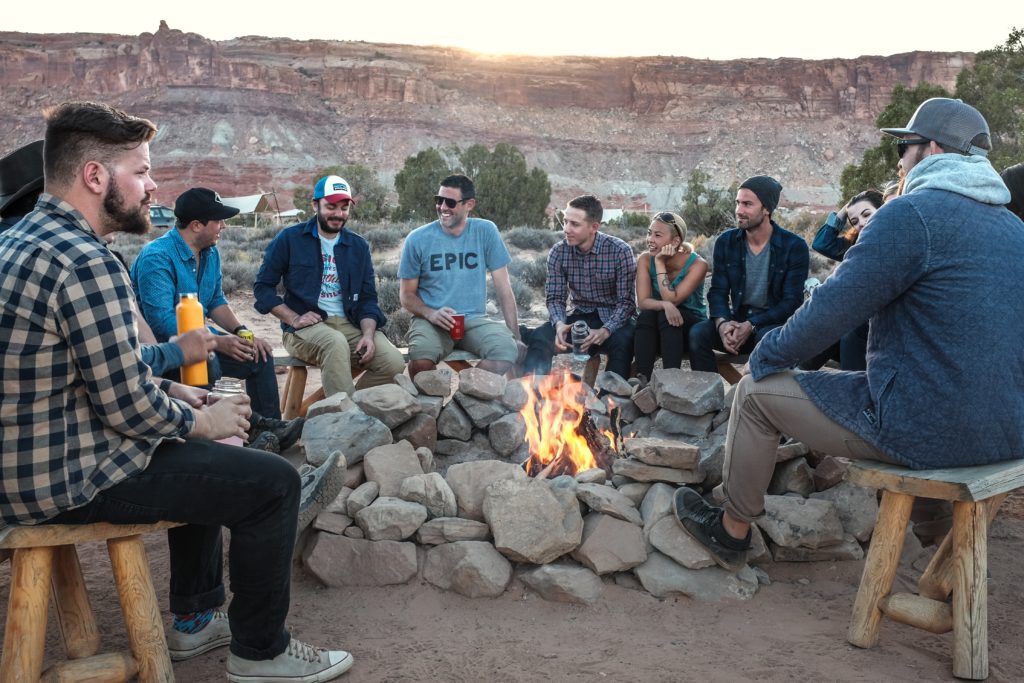13 Reasons Why can help set up discussions about how we treat one another
By: Dr. Bill Clark
It matters how we treat each other – especially how boys/girls treat girls/boys.
13 Reasons Why (the book more so than the show) dramatically highlights peer relationships and provides a natural catalyst for kids to discuss their own relationships and tendencies.
It matters how we treat each other especially how boys/girls treat girls/boys.
Thoughtful kids might be easily encouraged to consider:
- How do boys treat girls in my school or group?
- How do guys treat guys?
- How do girls treat girls?
- How do girls treat guys?
- How do I treat others?
- What do I do when I see unjust or inappropriate treatment of others?
Reason 5 to Engage: Hannah’s downward spiral was mostly about a string of “small” relational events that could happen to anyone. This sets up potentially helpful discussions about how we treat each other.
One of the smaller, almost forgettable, scenes in the book and Netflix version of 13 Reasons Why comes after the list of “Who’s hot and who’s not?” gets spread around the school. Hannah gets listed as “best ass” in the freshman class. She’s appropriately irritated, but easily puts it in perspective, until she goes to the convenience store to get a candy bar.
While there, Bryce [who represents the worst of male adolescent behavior] comes in and they have a brief interaction where he gropes her to confirm her “status”. She tries to get away but they end up having a brief conversation – which is equally disturbing. In her tape, Hannah breaks down the importance of the event and the misogyny (hatred of women) displayed:
Okay, let’s dissect what just happened… First his words, then his actions. Statement number one: “I’m only playing, Hannah.”
Translation: Your ass is my play-toy. You might think you have final say over what happens to your ass, but you don’t…
Statement number two: “Just relax.”
Translation: Come on Hannah, all I did was touch you with no indication that you wanted me to touch you.
Action number one: Grabbing my ass.
Interpretation: Alex, am I saying your list gave him permission to grab my ass? No. I’m saying it gave him an excuse. And an excuse was all this guy needed.
Action number two: He grabbed my wrist then put his hand on my shoulder.
You know, I’m not even going to interpret this. I’m just going to tell you why it pissed me off… when this guy saw me upset, did he apologize? No. Instead, he got aggressive. Then, in the most condescending way, he told me to relax. Then he put his hand on my shoulder, as if by touching me he’d somehow comfort me.
Here’s a tip. If you touch a girl, even as a joke, and she pushes you off, leave…her…alone. Don’t touch her. Anywhere! Just stop. Your touch does nothing but sicken her.
As Clay listens to Hannah describe this scene, he says: “I’m starting to understand. I’m starting to see what Hannah means. And that opens up a black hole in the pit of my stomach.” He’s seen Bryce in action, but he also identifies his own treatment of girls. He sees how even the simplest of objectifications can lead to real harm and communicate a horrific message involving power and “rights.”
It’s The Small Things That Can Have The Biggest Impact
This is an example of what is helpful about the story, if we get past the “big” events. Hannah’s downward spiral was mostly about a string of “small” relational events that could happen to anyone.
Hannah’s downward spiral was mostly about a string of “small” relational events that could happen to anyone
The marquis male/female events in the Netflix story are loud;
- Bryce’s raping of two girls, and his misogynistic defense of rape,
- Justin allowing the first rumor to spread, and worse, “letting” Bryce into the room where a comatose Jessica lies vulnerable,
- Tyler’s photos and stalking behavior,
- Clay’s cowardice in approaching Hannah and failure to believe the best about her
However, there are smaller and more common patterns of gender discrimination, sexism, and sexual abuse that occur in the story, and in our various worlds. Women and minorities know this, but many men and boys do not.
Most boys watching this show will not plan to rape or stalk girls, so they may think they treat females appropriately. It’s helpful to encourage them to stop and consider how they both see and treat the girls they are around.
Secondly, how girls can treat girls is also on display in the book and show. Hannah feels as betrayed by Jessica, Courtney, and Sheri as she does some of the males. Their self- interest, their willingness to contribute to the rumors about Hannah, their denial of culpability is shocking — but not unthinkable.
These aren’t “mean” girls. They are not immature and childish. They aren’t especially competitive. Nor do they think they are being hurtful. But they are, and that is good for kids to see and face.
Self-interest and basic selfishness can lead to a failure to notice and care about someone you see every day, if not worse. And that can contribute to a friend’s depression. Like the sexual issues mentioned above, these dynamics are not unusual.
A story like 13 Reasons Why provides parents with a launching site for a potentially helpful discussion of how kids treat themselves and others in their world, and what might be at stake.
If you’re interested in reading more reasons 13 Reasons Why can help you engage with your children, check out our additional blog posts here.
Please leave any questions you have or comments below.

